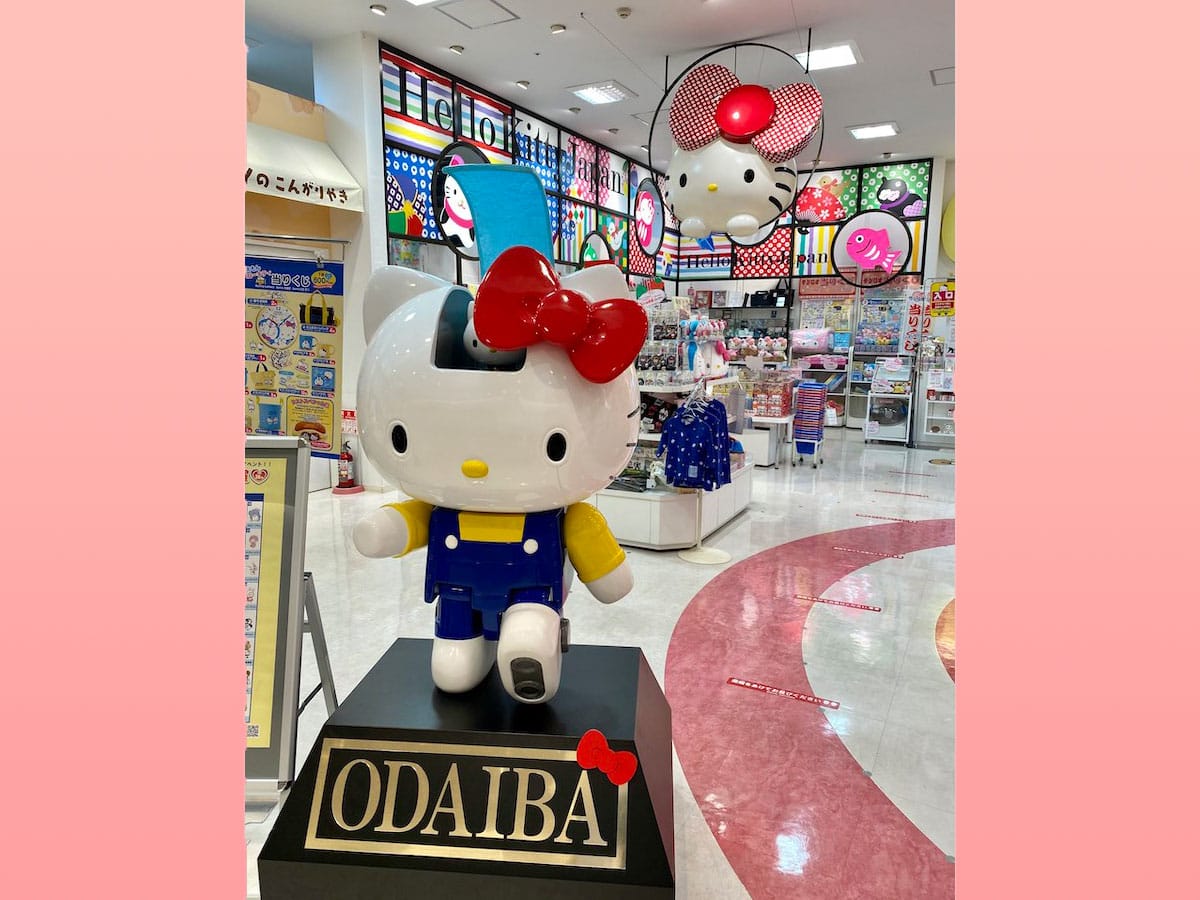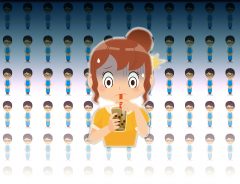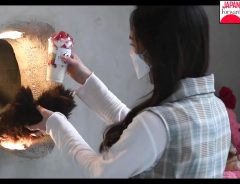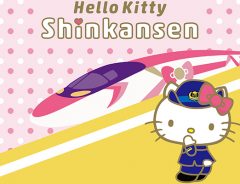
Hello Kitty on the march in Odaiba, Tokyo. | Photo by George Lloyd
Sanrio Entertainment, PwC Consulting collab for research project on kawaii & consumer behaviour
- Tags:
- consumer behavior / Kawaii / PwC Consulting / Sanrio Entertainment
Related Article
-

You won’t believe it’s not anime: Wasu’s wonderfully kawaii hand-operated paper puppets
-

Bubble Tea Shop’s Kawaii Mood Ruined By Older Male “Staff,” Customer Gripes
-

Happy Birthday Ram & Rem! Birthday Event Announced for Re:Zero’s Adorable Twin Maids
-

Cosplayers to Watch: Hijab Cosplayer Miisa (Photos and Interview)
-

The Bear Paw Café: A Kawaii Way of Employing People With Mental Health Issues
-

Hello Kitty Bullet Train Will Bring Kawaii To West Japan In Summer 2018


A kawaii collaboration
Why is one of the world's biggest management consultancies teaming up with the creators of Hello Kitty?
On 20th May, Sanrio Entertainment Co., Ltd. and PwC Consulting announced a joint research project to investigate the science of happiness. They say the aim is "to increase the happiness of the world by thoroughly dissecting Japan's proud kawaii culture." More specifically, the project will look at how consumers react to kawaii (cute) images, and its implications for neurobiology.
From a brain scientist's perspective, some obvious questions spring to mind when considering Hello Kitty. Kawaii characters might look simple, even childish, but what exactly is going on the mind of a typically skeptical consumer when she buys a Hello Kitty product?
Does everyone perceive kawaii characters and kawaii behaviour in the same way? What are the factors that make some people receptive to kawaii, and others hostile? How is kawaii related to brain health and how can it be used to improve people's well-being?
An Eva Air Airbus A330 in Hello Kitty livery. | Masahiro TAKAGI from Ichikawa, Chiba, Japan, CC BY 2.0, via Wikimedia Commons
Cracking the "mechanism of kawaii"
The project's designers say they are determined to crack what they call "the mechanism of kawaii" by incorporating the knowledge of happiness science and brain science. The research team will use MRI (Magnetic Resonance Imaging) devised through the ImPACT Yamakawa Program of the Cabinet Office to map kawaii brain activity compare it with the BHQ (Brain Healthcare Quotient), a brain health management index.
The science of happiness has become a popular research topic in universities over the past decade. The Sanrio/ PwC project will draw on the work of leading figures in happiness research like Ed Diener of the University of Illinois, creator of the "life satisfaction scale," and Takashi Maeno of the Graduate School of System Design and Management at Keio University, who has developed a theory around "the four factors of happiness."
How the project plans to investigate 'the kawaii mechanism'. | © PR Times, Inc.
PwC Consulting already has experience of what it calls "happiness marketing," helping companies to appeal to consumers and build sustainable relationships by tapping into their receptivity to "happiness."
Sanrio Entertainment is a Japanese company that designs, licenses and produces kawaii products, including stationary, school supplies, gifts and accessories. Best known for their anthropomorphic creation Hello Kitty, the company is one of the most successful marketing brands in the world.
A timely project
The project is timely. More than a year has passed since the coronavirus pandemic began, and the world is still gripped by fearfulness, caution and doubts about the future. In an era of 'fake news', traditional sources of information are no longer trusted. This has only compounded widespread mistrust of established authorities, from the church to the police, political parties and corporations.
The disengagement this leads to makes planning and mobilization more difficult. In such circumstances, animated characters like Hello Kitty become valuable conduits for important information.
Sanrio says it is on a mission to create and disseminate "kawaii entertainment... maximize the power of kawaii, deliver kindness and increase the happiness of the world." It says that it plans to use the project's findings to improve the customer experience at its theme parks, Sanrio Puroland in Tama, Tokyo and Harmony Land in Oita prefecture.
Both theme parks have become popular by allowing visitors to interact with Sanrio characters. It hopes the findings will help it to "bring even more smiles to customers."
PwC Consulting is clearly interested in what businesses can learn from Hello Kitty. The company says, "we would like to create new business opportunities by collaborating with various companies and organizations and encouraging the introduction of kawaii elements into different industries."
Some of the applications it envisages are not new. It says kawaii can be useful for those "designing places for nursing care, childcare, education, etc. with a sense of security and intimacy." It is also interested in how kawaii and "happiness marketing" can help with product development and tourism.
PwC clearly believe there are lessons to be learned from Hello Kitty. After all, Sanrio has built a highly successful business on making people happy and keeping them that way. Many business leaders and governments would like to know how they do it. PwC says it hopes the project will "make it possible to elucidate the happiness mechanism with even higher accuracy."
The company also says it hopes the project will enable it to break new ground in using kawaii to "design a corporate world view," "develop a sympathetic leadership model based on cuteness" and "design the way we should be."
PwC Consulting
With more than 284,000 staff in 155 countries, PwC Consulting is one of the world's biggest audit, tax and advisory services. The company provides comprehensive consulting services "to help clients solve complex and difficult management challenges and become more competitive in the global market... PwC's Purpose is to build trust in society and solve important issues."
PwC Consulting's Technology Laboratory uses the BHQ (Brain Healthcare Quotient) to solve social issues related to the mind. For more details, see here.
PwC Consulting's Technology Laboratory is particularly interested in the contribution of brain science to well-being. See here.